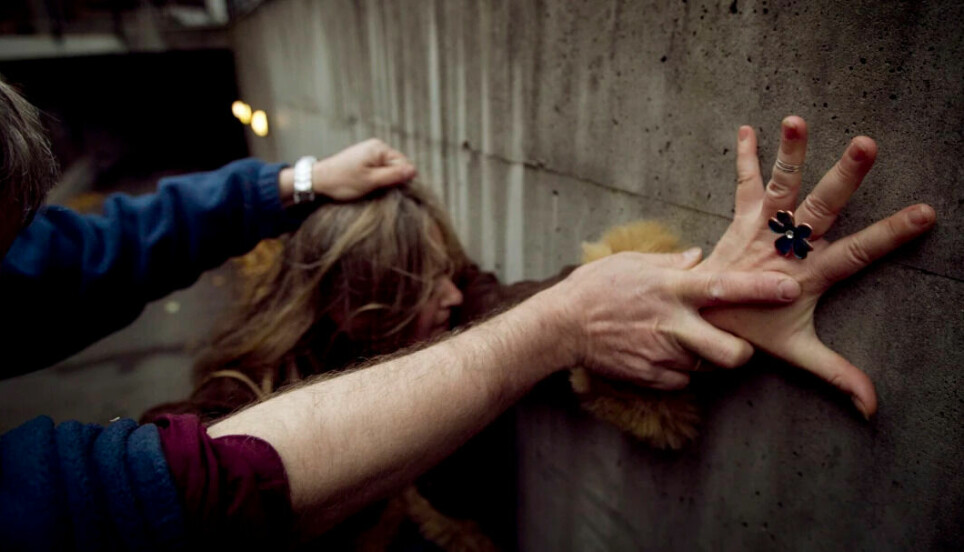
Almost one in four Norwegian women have experienced rape during their lifetime
According to a new study, a total of 23 per cent of Norwegian women and 4 per cent of Norwegian men say they have been raped at least once.
Almost 5,000 people have answered the Norwegian Centre for Violence and Traumatic Stress Studies (NKVTS)'s questions about the extent to which people in Norway are exposed to abuse and violence. It has been nine years since such a survey was last carried out in Norway.
“Violence and abuse is still a serious social problem in Norway,” the researchers behind the extensive study write.
The study was handed over to Minister of Justice Emilie Enger Mehl on Tuesday morning.
5 per cent were under the age of 13
In the survey, a total of 23 per cent of the women answered that during their lives they had been subjected to rape by force, coercion or whilst they slept, or that they had been subjected to abuse before they turned 13.
Half of those who answered that they were subjected to rape by force or coercion were under 18 when the abuse occurred.
5 per cent of the respondents stated that they had been raped when they were under the age of 13, and by a person who was at least five years older than them.
Startling
In comparison, 4 per cent of the men in the survey stated that they had been subjected to the same type of abuse.
“This is startlingly high, and higher than we expected to find. We see that the reported increase in gross violence applies specially to rape by force and coercion,” researcher Maria Teresa Grønning Dale at NKVTS tells NTB.
When NKVTS last carried out a similar survey in 2014, 9.4 per cent of the women answered that they had been raped at some point in their lives.
Even then, about half answered that they were under 18 when they experienced the rape.
In 2014, the researchers did not ask questions about being raped whilst asleep, which 11 per cent of the women now report having been exposed to.
Nevertheless, 14 per cent of the women questioned state that they have been subjected to rape by force or coercion. This is 4.6 per cent more than in the previous survey.
“We would of course actually prefer this figure to be zero,” Grønning Dale notes.
Ashamed
The assaults against women are most often carried out by someone they know: Partner, former partner, a friend or acquaintance. This is the reason why many don’t report their abuse, either to the healthcare system or the police.
The women in the survey express that they, to a great extent, feel guilt or shame after the abuse has occurred.
“There is a dramatic development when it comes to the rape of women,” Grønning Dale says. “We do not know whether it is real or whether it is temporary, or whether it has increased due to under-reporting in the past.”
Almost half of the raped women also answered that they were afraid of being killed or seriously injured during the assault.
The survey also looks at digital sexual abuse, and 6 per cent of the women questioned answer that they have been exposed to digital abuse.
Physical violence is common – also amongst men
As many as 40 per cent of all those asked in the survey, and almost half of all men, say they have been exposed to at least one form of physical violence after they turned 18.
Both men and women experience being exposed to violence from other men, but women are exposed to gross physical violence from their boyfriend or a former partner to a far greater extent than men.
Men also experience violence, but this is to a greater extent linked to incidents outside the home. They are most often subjected to violence by someone they do not know, often in connection with nightlife.
“There is no doubt that preventing violence has to be one of the things that must be addressed. We are particularly concerned about the high rates of rape amongst young Norwegian women. The public health perspective comes into play when we see that those who have been exposed to several types of violence also have a much greater risk of health problems in the future,” Grønning Dale says.
Demanding study
Calling almost 5,000 people and getting them to tell the researchers about abuse and incidents of violence they would in many cases rather just forget is no easy task. The employees at the market research company Ipsos, which carried out the survey for NKVTS, were trained ahead of the task.
“The participants who were called were given the opportunity to talk to a psychologist and possibly also be referred after the call. This job was also burdensome for those who conducted the interviews,” Grønning Dale says.
———
Translated by Alette Bjordal Gjellesvik.
Read the Norwegian version of this article on forskning.no































